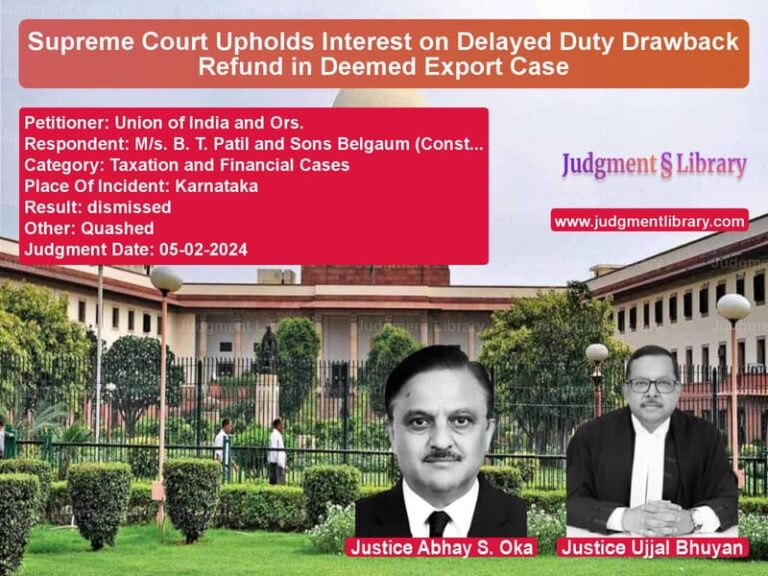Environmental Concerns Over Stone Crushers in Uttarakhand: Supreme Court’s Decision
The Supreme Court of India recently dealt with a significant environmental case concerning the operation of stone crushers in Uttarakhand. The case revolved around allegations of environmental pollution caused by two stone crusher units operating in Village Fatta Bangar, Haldwani, Nainital District. The appellants argued that the operations of these units caused severe air and noise pollution, affecting nearby residential areas and educational institutions.
Background of the Case
The case began when the appellants, led by Tejinder Kumar Jolly, raised concerns about the environmental impact of stone crushing units. Complaints were filed in 2013, highlighting that the operations caused noise pollution, air pollution, and disruptions to the daily lives of students and villagers. The District Magistrate and Pollution Control Board were informed, but no immediate action was taken.
Arguments by the Petitioners
The petitioners made the following arguments before the National Green Tribunal (NGT) and the Supreme Court:
- The stone crusher units violated statutory environmental norms and were located too close to residential areas and schools.
- Pollution levels exceeded permissible limits, as confirmed by various reports from environmental agencies.
- The respondents had failed to comply with orders directing them to relocate their units.
- The authorities, despite multiple complaints and reports, failed to act against the stone crusher units.
Arguments by the Respondents
The stone crusher owners and the Uttarakhand government defended their position with the following arguments:
- The units had been operational since 1985, well before stricter environmental laws were enacted.
- They should not be forced to relocate due to later developments around their premises.
- Environmental policies introduced after their establishment should not be applied retroactively.
Judgment and Supreme Court’s Observations
The Supreme Court, in its ruling, highlighted the importance of adhering to environmental laws, even for pre-existing industrial units. The court cited the principle established in Himmat Singh Shekhawat vs. State of Rajasthan:
“Environmental laws are enacted for the benefit of the public at large. Existing industrial units must comply with pollution control norms, and no unit has a right to pollute merely because it was established before the enactment of stricter laws.”
The Supreme Court further noted that public interest required immediate action against polluting units, and authorities could not ignore their duty to regulate industrial pollution. The court ordered the restoration of the case before the NGT for fresh adjudication, emphasizing that:
“The Tribunal must ensure that the environmental concerns raised by the appellants are addressed on merit. The decision to close the case without proper examination was not justified.”
Conclusion
This judgment reaffirms the principle that environmental laws apply to all industrial units, regardless of their date of establishment. The Supreme Court has made it clear that pollution cannot be justified on the grounds of historical operation. This ruling sets a precedent for stricter enforcement of environmental laws in India.
Petitioner Name: Tejinder Kumar Jolly.Respondent Name: The State of Uttarakhand.Judgment By: Justice Hrishikesh Roy, Justice R. Subhash Reddy.Place Of Incident: Haldwani, Nainital, Uttarakhand.Judgment Date: 18-11-2021.
Don’t miss out on the full details! Download the complete judgment in PDF format below and gain valuable insights instantly!
Download Judgment: tejinder-kumar-jolly-vs-the-state-of-uttarak-supreme-court-of-india-judgment-dated-18-11-2021.pdf
Directly Download Judgment: Directly download this Judgment
See all petitions in Environmental Cases
See all petitions in Public Interest Litigation
See all petitions in Judgment by Hrishikesh Roy
See all petitions in Judgment by R. Subhash Reddy
See all petitions in allowed
See all petitions in Remanded
See all petitions in supreme court of India judgments November 2021
See all petitions in 2021 judgments
See all posts in Environmental Cases Category
See all allowed petitions in Environmental Cases Category
See all Dismissed petitions in Environmental Cases Category
See all partially allowed petitions in Environmental Cases Category







